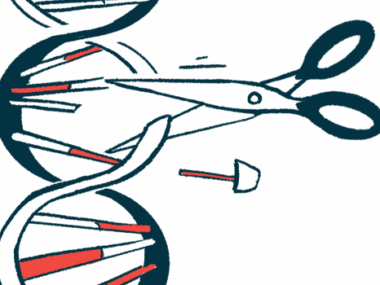Efforts underway to set up center for rare diseases in Abu Dhabi
Department of Health, AstraZeneca sign memorandum on shared mission
Written by |

The Department of Health-Abu Dhabi and AstraZeneca are partnering to set up a center of excellence for rare diseases in the capital city of the United Arab Emirates.
The two parties have signed a memorandum of understanding that outlines how they will work together on their shared mission to establish the center in Abu Dhabi — and achieve their joint goal of improving the diagnosis and treatment of rare diseases both on a regional and global scale.
The signing of the memorandum took place during the BIO 2024 International Convention, held earlier this month in San Diego. The four-day event this year featured more than 100 interactive sessions covering a variety of therapeutic areas.
“We are proud of our collaboration with the Department of Health-Abu Dhabi marking a significant step forward in our shared mission to transform the lives of those impacted by rare diseases,” Ahmed Salem, director of the GCC rare disease unit at AstraZeneca, said in a press release.
Like other countries in the Arab world, the United Arab Emirates has a large number of people with genetic diseases present from birth, many of which are rare or ultra-rare like aromatic L-amino acid decarboxylase (AADC) deficiency.
New center for rare diseases will be located in the capital city of the UAE
Rare diseases place a high burden on patients and their families. Building on Abu Dhabi’s advanced healthcare infrastructure and AstraZeneca’s experience with rare diseases, the center of excellence is expected to address this burden.
With a focus on blood, neurological, and metabolic diseases, the Department of Health and AstraZeneca will join forces to develop thorough plans to treat and monitor patients as well as to aid in their diagnosis — a step that is often delayed, limiting effective intervention.
“Through this collaboration, we aim to leverage our global expertise in rare disease management by focusing on diagnostic excellence, comprehensive treatment protocols, and world-class patient care,” Salem said. “This aligns with Abu Dhabi’s vision of becoming a global hub for life sciences and medical innovation and we are happy to contribute to that.”
According to Asma Ibrahim Al Mannaei, executive director of the Department of Health’s research and innovation center, the “Emirate is already home to some of the world’s most renowned global healthcare facilities, including four [centers] of excellence dedicated to delivering best-in-class care.”
Partnership is a driving force at the Department of Health, and our latest with AstraZeneca will allow us to deliver on our promise to spearhead research and innovation enabling a healthier future for those impacted by rare disease, locally, regionally and beyond.
The involvement of the Department of Health at BIO 2024 was part of a larger effort to showcase Abu Dhabi’s opportunities for partnerships and explore collaborations in research, development, and innovation in health technology and life sciences.
“None of this would be possible without collaboration,” Al Mannaei said. “Partnership is a driving force at the Department of Health, and our latest with AstraZeneca will allow us to deliver on our promise to spearhead research and innovation enabling a healthier future for those impacted by rare disease, locally, regionally and beyond.”






